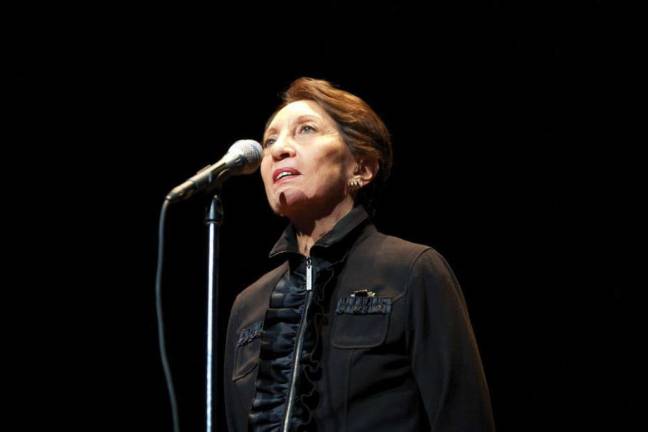Talking Up DT with Joan Firestone: Executive Director of the Moth

Joan Firestone, executive director of The Moth, shares the importance of telling stories Downtown?and how the experience just might connect you to everybody, everywhere.
How did life at The Moth begin for you? I'm the last one in. A year and a half ago, the executive director stepped down and I was asked by a board member if I would be interim director while they looked for a permanent replacement. I've never done anything without sinking my teeth into it!
What work are you doing today for The Moth? Today, I'm actually in Portland to celebrate the 15th anniversary of The Moth. There were 2,700 people at the event in Portland tonight, sharing stories. The impact that The Moth has on people is astounding; it creates an authentic dialogue between storytellers and audiences.
How did The Moth come about? The novelist George Davis Greene would get together with friends on a porch in Georgia, and then when he was up in New York, they'd do the same thing in a small Manhattan apartment-friends would just get together to tell true stories about themselves. It's called "The Moth" because so many moths would come to the well-lit porch when they were telling stories. And now, audiences flock like moths to the light. These are true stories that resonate personally and universally.
Why storytelling? Isn't that outdated in the age of technology? Storytelling is as old as time; it can never go out of fashion! The Moth came about because George was interested in reminding people to listen to one another. Over time, The Moth staff has figured out how to help storytellers craft and shape their stories so that it's easier for audiences to hear and receive them. Shaping a true story so that there's a narrative arc and an ending allows storytellers to expose vulnerability, be it through humor or pathos. In any case, it makes the stories immediately available to other people.
What makes New York City a good headquarters for The Moth? Well, we aren't New York City-centric, but many of our storytellers are part of the New York City literary world. The diversity of New York City fuels us and, in turn, makes us acceptable. We are more and more a part of the fabric of New York City life. People are either at the mainstage show or at an open mic slam or listening to one of our free podcasts. There are a lot of interested people. You can always spot a Moth event because of the lines down the street. We never have enough seats.
How do you see The Moth shaping Downtown? The Moth is a lively part of the Downtown scene. When we did our first show at Cooper Union, we were terrified that we wouldn't fill the house, but we sold out. I think The Moth appeals to people Downtown who want to be involved in something affordable and intriguing in which everybody gets a chance. Our Downtown slam at the Housing Works Bookstore Café is a great example of this spirit: There was a snowstorm two years ago and most of New York City shut down. We had a slam planned for the evening and considered canceling it. The place was packed!
At our core, we're here to build community in the smallest and largest senses of the word.
What's the most difficult aspect of your job? Probably managing our ambitions and dealing with growth carefully. We're in a wonderful situation in that people want us to branch out all over the world. But we need to be sure that we manage delivering what we deliver well and never lose our standards. There are no compromises at The Moth.
What do you love most about your job? I'm a process person, so I love the excitement of process. To watch a storyteller sit with a director and to see the two of them take a story, respect the integrity of that story and then search for how it could be immediately available to others-it's a joy I really can't describe to you. There's also such a magnetic ambiance at Moth events and with the Moth staff. But even more than all that, when I see a kid come alive, a kid who has been downcast and outcast, and see her tell her story and through that create relationships with her peers and her community, I know she's had a gift. I love being a part of that gift.